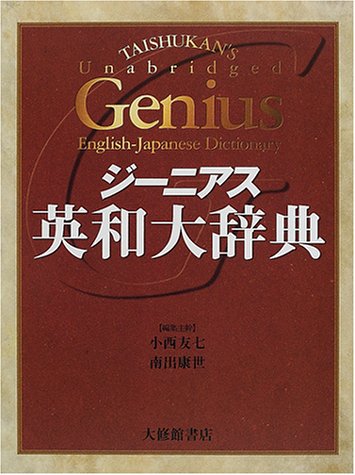40 0 0 0 ジーニアス英和大辞典
- 著者
- 小西友七 南出康世編集主幹
- 出版者
- 大修館書店
- 巻号頁・発行日
- 2001
2 0 0 0 OA 文法と辞書における規範主義:18世紀から現在まで
- 著者
- 南出 康世
- 出版者
- 近代英語協会
- 雑誌
- 近代英語研究 (ISSN:21864381)
- 巻号頁・発行日
- vol.1989, no.5, pp.1-15, 1989-05-19 (Released:2012-07-06)
- 参考文献数
- 22
It was during the eighteenth century that perhaps the greatest efforts were made to set up standards of correctness and force all grammar and usage to conform to such standards. Johnson's Dictionary of the English Language (1755) and Lowth's Short Introduction to English Grammar (1762) are two of the major milestones in the process of prescribing (i, e. standardizing, refining and fixing) the English language.In this paper we will consider in detail what roles prescriptivism has played in the grammatical and lexicographical description of English. In the course of the discussion of how prescriptivism has been codified by subsequent grammarians and lexicographers and how it has undergone various charges from descriptivists, we will clarify why Lowth tends to be less evaluated by modern linguists than Johnson in spite of the fact that they shared much the same normative attitude toward language. In the final section we will point out the linguistic potential of prescriptivism and argue that to condemn prescriptive grammar for failure to describe accurately is not to dismiss its whole conception as unscientific and pointless.
